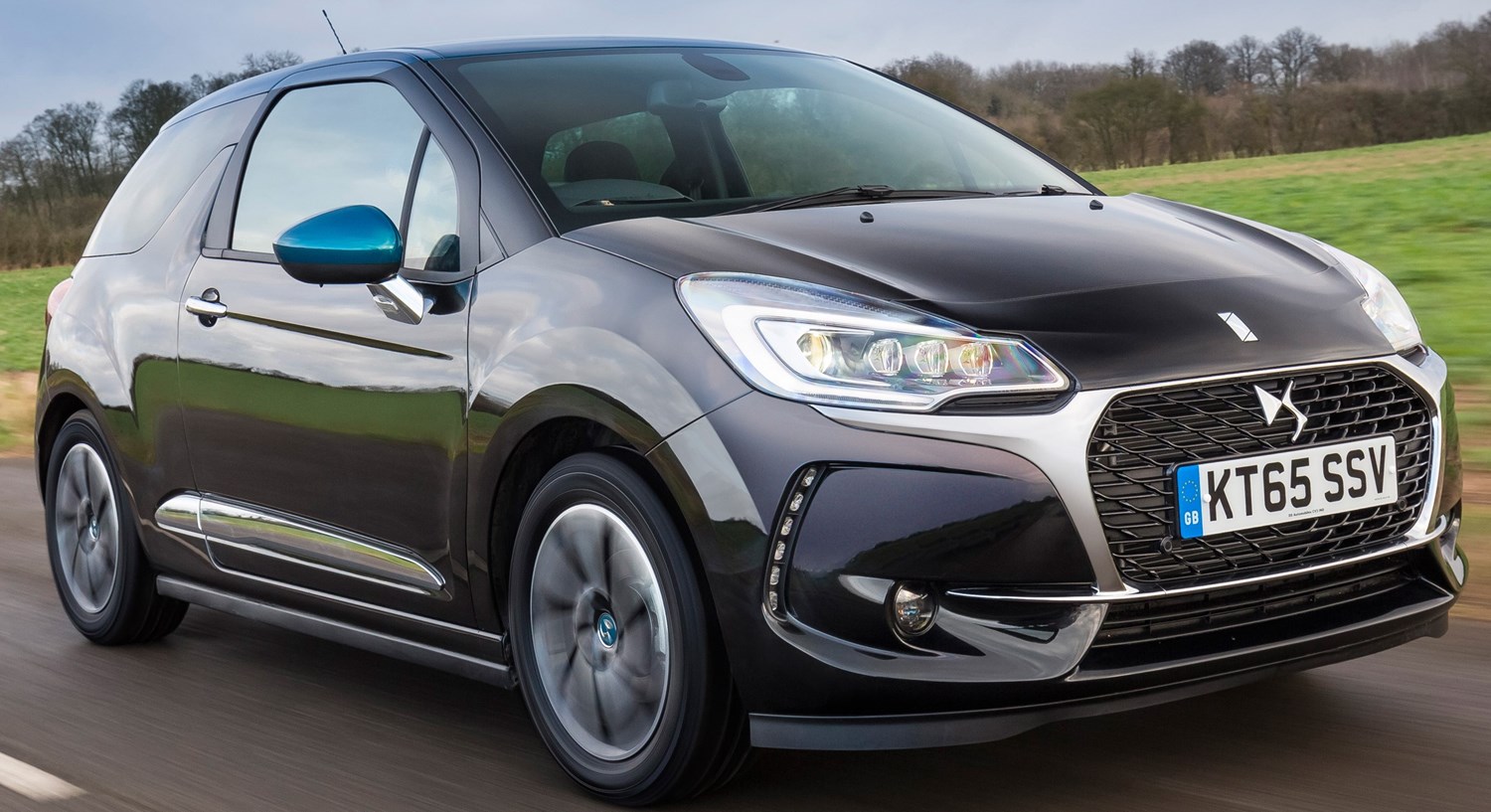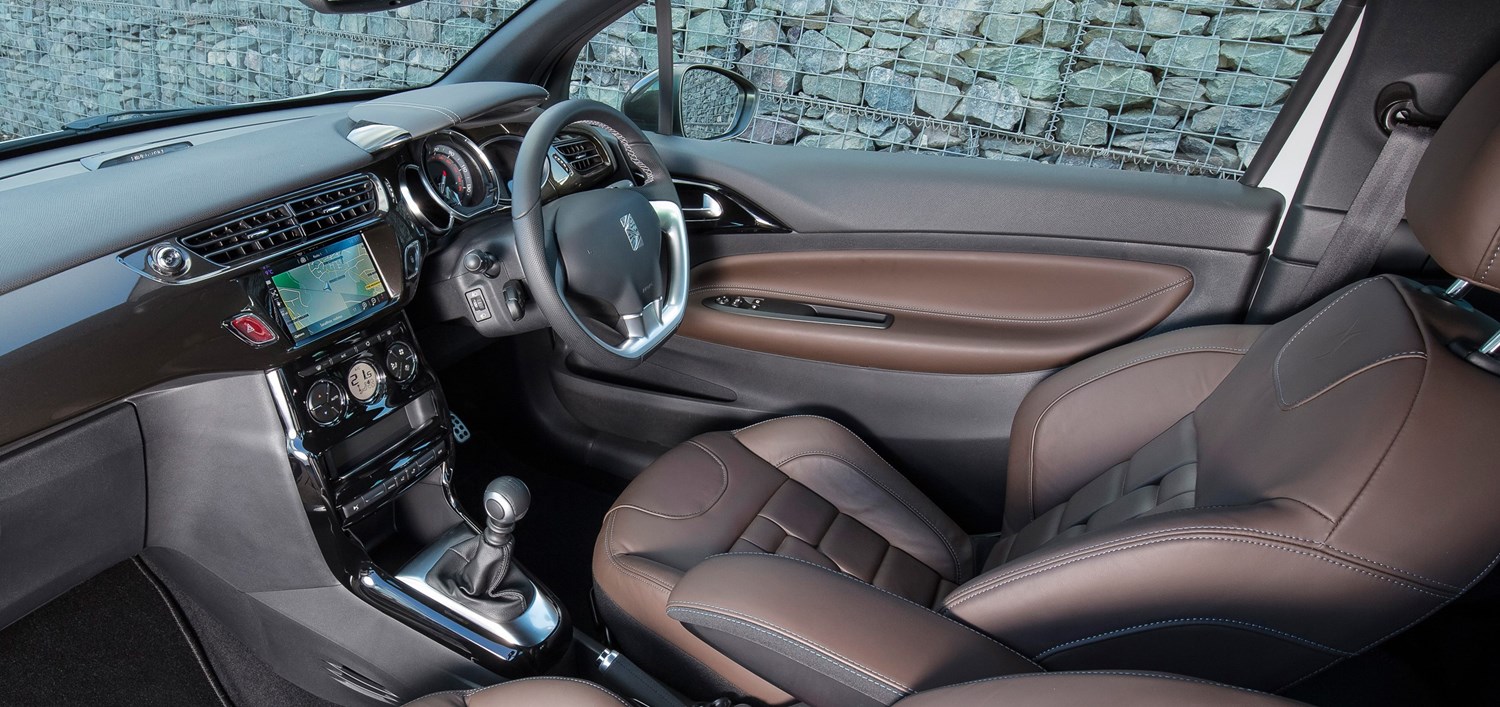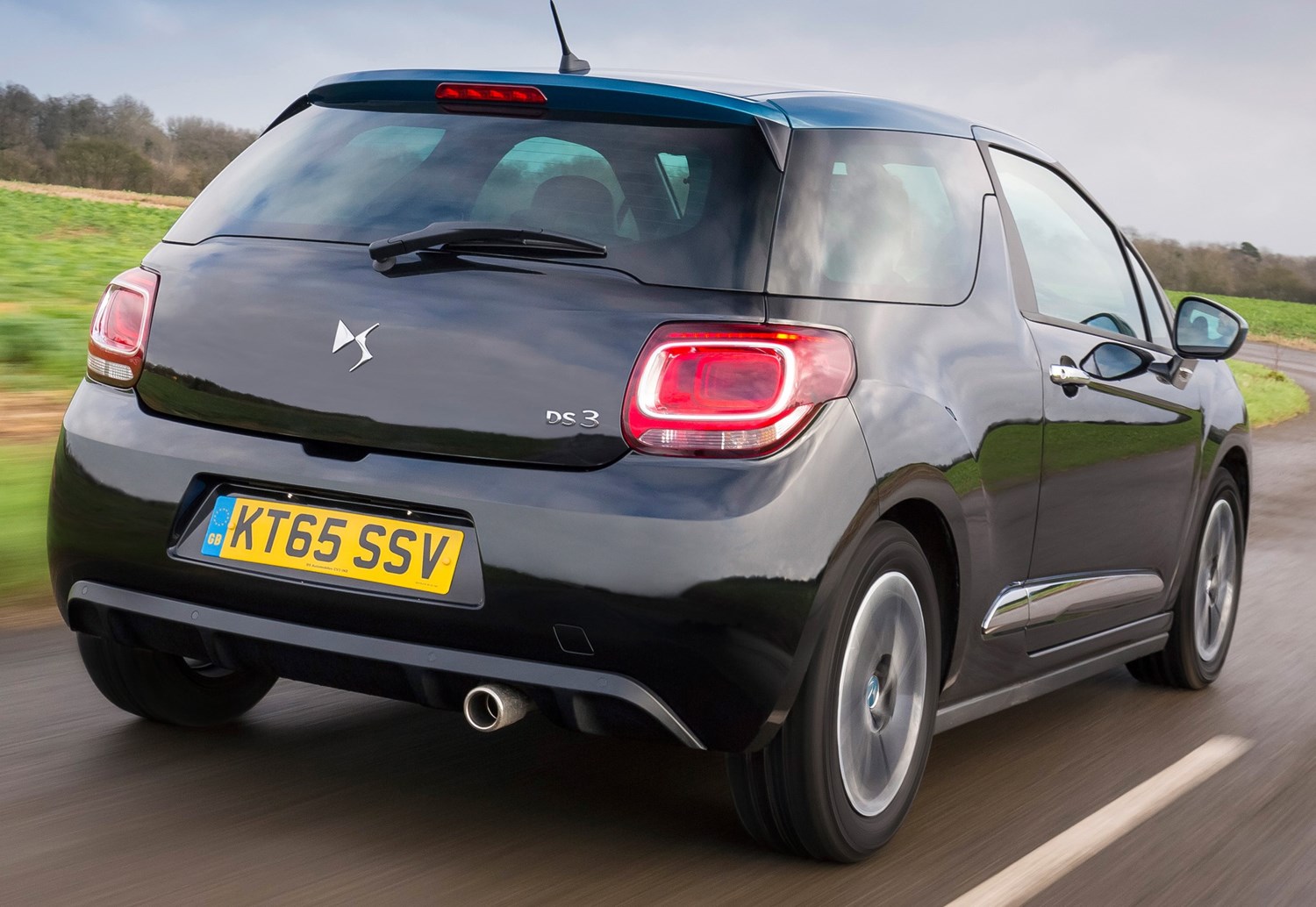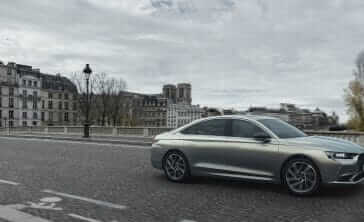Space and practicality
Interior space isn’t exactly the DS 3’s strong suit, thanks to the fact that it is available only as a two-door cabriolet or a three-door hatchback. Sure, there’s a decent amount of room in the front seats, but expecting to seat a couple of adults in the back over a long journey would be a rather unreasonable request.
Another foible is the fact that the DS 3 only has a limited number of storage options in the cabin. While the doorbins might be a useable size, and there are some cubby holes in the centre console, the glovebox is tiny and there aren’t any proper cup-holders to speak of.
As far as boot space goes, the DS 3 offers a considerable 285 litres of storage capacity. While it might be slightly short of the space offered by a cheaper Fiesta, it trounces the space available in the boot of a three-door Mini Hatch.
If boot space is really what you’re after, avoid the convertible at all costs, as the traditional boot lid is replaced by a tiny hatch in order to make way for the folding canvas roof.
Engines
The DS 3 is available with a selection of three petrol engines and one diesel engines, all in various states of tune. Manual gearboxes are fitted as standard.
As far as petrol engines go, the entry-level unit is a 1.2-litre, three-cylinder that produces 81bhp. CO2 emissions stand at 107g/km, while it has a claimed fuel consumption figure of 61.4mpg on the combined cycle.
Next is another 1.2-litre three-cylinder petrol, although this time it’s turbocharged. This power plant is available with 109bhp and 128bhp, boasting respective fuel economy figures of 65.7mpg and 62.8mpg. The 109bhp engine is the only one in the DS 3 range available with a six-speed automatic transmission.
The larger 1.6-litre, four-cylinder turbocharged engine crowns the range, and is available with 163bhp. An even more powerful 208bhp version features in the DS 3 Performance hot hatchback, and boasts a 0-60mph sprint time of just 6.3 seconds.
The diesel offering comes in the shape of a 1.6-litre, four-cylinder engine. This is available with either 99bhp or 118bhp. The less-powerful unit promises fuel economy figure of 83.1mpg, while the quicker 118bhp unit manages 78.5mpg. As far as CO2 emissions go, the 99bhp unit produces 87g/km, while the 118bhp engine emits 94g/km.
Running costs
Considering you can have a DS 3 with everything from a frugal diesel all the way up to a high-performance hot-hatch engine, running costs will vary considerably. If out-and-out fuel economy is what you’re after, opt for the 99bhp, 1.6-litre BlueHDI diesel engine.
New DS 3s across the board will be hit rather hard by the road tax changes that will be implemented on April 1 2017. From that date, the 99bhp diesel engine will cost £100 in tax in the first year, and £140 each year afterwards. Currently, it doesn’t qualify for any road tax as it emits less than 100g/km of CO2.
Because of this, used cars – or cars first registered before April 1 – will be a far more appealing proposition, as they will cost far less in VED each year.
 app
app


